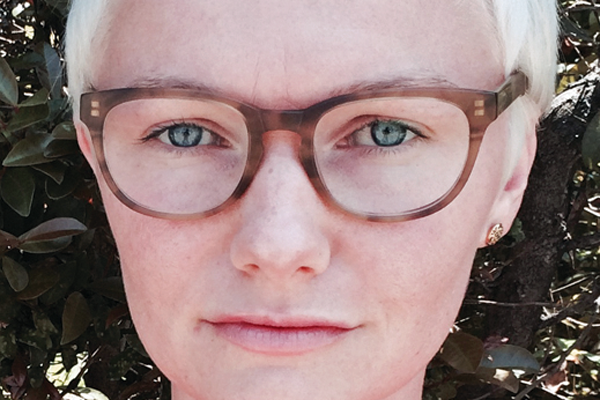
Excerpt from Vanity Fair
Editor's note: Nicole Riegel graduated from Wright State in 2009 with a bachelor's degree in motion pictures. Her first feature film, Holler, opened in theaters on June 11, 2021.
Seventeen-year-old Ruth (Jessica Barden), the quietly steely heroine of the new movie Holler, has a college acceptance letter waiting in the mailbox and an eviction notice hanging on her front door. There’s no running water in the house, but Ruth’s room is an oasis of books stolen from the school library and maps of places far from her Appalachian hometown. Her urge to escape, and limited means, are struggles director Nicole Riegel knows all too well.
“When I was growing up in southern Ohio and wanting to be a film director, I could not wait to leave in order to pursue that dream,” the filmmaker tells Vanity Fair. “I didn’t view Appalachia as a place where I could be a film director. I didn’t see a lot of other women doing it. I didn’t even really see any men doing it.” It was a poetic twist of fate, then, that Riegel returned to her hometown of Jackson, Ohio, to film her first feature. “As I got older and then pursued this path, I was only really successful because I went back to Appalachia to make my film,” she says. “I think it’s really come full circle for me in that way.”
Holler, out in theaters and on VOD on June 11, follows Ruth’s fight to leave a factory town that’s short on opportunity. She works alongside her older brother, Blaze (Gus Halper), as part of a scrap metal crew that sells parts to overseas entities. The working conditions are treacherous, and the labor’s legality is dubious at best. But it’s the only option afforded to Ruth in the wake of economic strife and a mother (Pamela Adlon) battling addiction from inside a county jail. Throughout the Paul Feig–produced film, Ruth keeps a protective layer around what exactly drives her to get out of the Rust Belt.
“I mean, the character’s very much inspired by me,” Riegel says, laughing, when asked about Ruth’s instinct to shield herself from the world. “It’s hard for me to talk about her and not talk about my own experience because it’s so interwoven.” Like Ruth, Riegel felt like an outsider in her Appalachian town, taught to tamp down parts of herself that stood out. “I think a lot of young women in that part of the country feel that way,” she says. “They feel bad about ambition, and they still feel bad about desires for their lives that are different than [those of] other girls. It makes you feel bad about yourself and it closes you off. And you become an observer, as opposed to engaging with those around you. That’s why Ruth is the way she is. It’s a lot of why I am the way that I am.”

